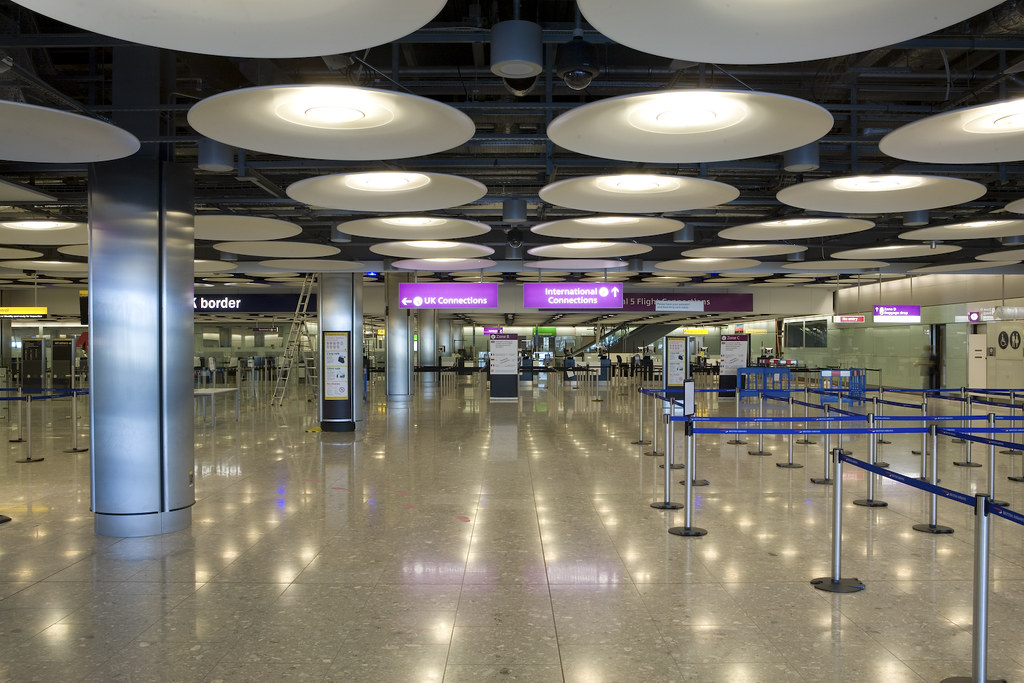Have you ever found yourself sprinting through an airport, heart pounding, as you glance at your watch and realize you’re about to miss your connecting flight? If so, you’re not alone. My own saga of airport transfers gone awry at Dallas-Fort Worth has become a cautionary tale among my circle of friends. Not once, not twice, but thrice have I found myself stranded overnight due to missed connections at this particular hub. You might wonder why I didn’t learn my lesson after the second mishap. Well, hope springs eternal, or so I thought, until I found myself lamenting my decision, stranded yet again. A combination of optimism and forgetfulness led me to believe the third time’s the charm. Spoiler alert: it wasn’t.
The Appeal and Controversy of Skiplagged
This experience isn’t merely a tale of personal misfortune. It sheds light on the broader issues travelers face in today’s aviation landscape. Flying, an already expensive endeavor, has seen prices escalate due to consolidation among U.S. airlines. The reduction in competition on certain routes means we’re often left paying more for the same service. It’s against this backdrop that services like Skiplagged have emerged, offering a glimmer of hope for those of us looking to save on airfare without compromising on destinations.
Skiplagged isn’t your typical booking service. It exploits a loophole known as ‘hidden-city’ ticketing, where travelers book a flight with a layover at their actual destination, only to disembark and skip the connecting flight. Seems like a clever hack to circumvent the system, right? This approach can indeed slash the cost of your airfare significantly. However, as I’ve learned through my own travel trials, cutting corners can sometimes lead you straight into a maze of unforeseen complications.
The premise of Skiplagged is simple yet revolutionary. By booking a ticket to a supposedly more distant destination, with a layover where you really intend to go, you can bag substantial savings. For example, a direct flight from Atlanta to Orlando might set you back $250, but a ticket from Atlanta to Dallas, with a layover in Orlando, could cost just $130. It’s easy to see the allure of such savings, especially when Skiplagged has made finding these deals more accessible than ever.
As with any too-good-to-be-true proposition, there are strings attached. The airlines, unsurprisingly, are not fans of this workaround. The practice of hidden-city ticketing has drawn legal battles, most notably when United Airlines sued Skiplagged in 2014. Despite the lawsuit being tossed out by a judge, the case spotlighted the contentious nature of exploiting airline pricing inefficiencies. Skiplagged’s founder even managed to raise over $80,000 for legal fees, underscoring the support for such services among frustrated flyers.
Don’t gloss over the downsides. The logistics of hidden-city ticketing demand careful consideration. For starters, you can’t check in any luggage, as it will be routed to the final ticketed destination, not your actual stopping point. This limitation alone can be a dealbreaker for many. Furthermore, the strategy falls apart if you’re eyeing a round-trip ticket since airlines will cancel your return flight the moment you fail to board a connecting flight. And let’s not forget the potential for schedule changes to upend your carefully laid plans, turning a savvy savings strategy into a logistical nightmare.
My own experiences have taught me the importance of weighing the pros and cons of unconventional travel hacks. While the appeal of saving a few hundred dollars is undeniable, it’s crucial to consider the potential for added stress and uncertainty. As travelers, we seek the thrill of adventure and the joy of exploration, but we must also navigate the complexities of the modern travel landscape with our eyes wide open. The story of Skiplagged is a testament to the ingenuity of travelers in pursuit of fair fares, but it also serves as a reminder that the road less traveled can sometimes lead to unexpected destinations.

The Challenges and Risks of Hidden-City Ticketing
Welcome to the nuanced, often misunderstood world of Skiplagged, where the realms of travel hacking and airline fare structures collide in a dance as intricate as it is contentious. It’s a place where savvy travelers, armed with just a carry-on and a thirst for savings, embark on journeys mapped out through loopholes rather than direct routes. But as we venture deeper, we uncover a landscape marked by legal battles, ethical debates, and the eternal question: just because we can, does it mean we should?
At the heart of Skiplagged lies the practice of hidden-city ticketing, a strategy as clever as it is controversial. Picture this: you need to get from Point A to Point B, but direct flights are exorbitantly priced. Enter Skiplagged, which finds you a flight from Point A to Point C, with a layover at your actual destination, Point B, all for a lower cost. It’s like finding a secret passageway in a maze, bypassing the main route and emerging closer to your prize – all while saving a few hundred dollars.
The tale of Skiplagged is not just about the thrill of beating the system; it’s a David versus Goliath story that saw United Airlines and Orbitz taking on this disruptive startup. The legal skirmish that ensued ended with a victory for Skiplagged, as the case was dismissed by a judge. This win not only solidified Skiplagged’s place in the travel hacking hall of fame but also highlighted a growing frustration among travelers over airfare pricing tactics.
Despite its allure, the path of hidden-city ticketing is fraught with pitfalls. The first hurdle? Luggage logistics. When embarking on a Skiplagged adventure, your suitcase becomes your trusty sidekick, never leaving your side, for if it does, it will continue without you to the final, unintended destination. This limitation alone might deter those of us who can’t fit a week’s worth of belongings into a carry-on.

Then there’s the issue of round trips. The airline’s response to your cunning plan to save on airfare? A swift cancellation of your return flight once you miss that first connecting leg. Suddenly, the savings start to seem less significant when weighed against the potential cost and hassle of booking another return flight – not to mention the risk of finding yourself stranded.
Schedule changes are another curveball that can turn your well-laid plans upside down. Imagine meticulously planning a trip, only to have the airline alter the itinerary, rendering your hidden-city ticket useless. These adjustments are not just inconveniences; they can unravel your travel plans entirely, leaving you back at square one, but with less time and potentially more expense.
The airlines, guardians of the skies, have not watched this unfold passively. Their stance is clear: hidden-city ticketing breaches the contract you agree to when purchasing a ticket. While not illegal, it places you squarely in the crosshairs of the airlines’ punitive measures, from voided tickets and lost frequent flyer miles to stern warnings and, in some cases, hefty bills post-travel.
Despite these challenges and risks, the allure of Skiplagged remains undiminished for many. It stands as a testament to the ingenuity of travelers, a beacon for those seeking to navigate the complex airfare ecosystem in search of fair fares. But it also serves as a cautionary tale, reminding us that the road less traveled, while potentially cheaper, is fraught with hurdles that require careful navigation.
As we ponder the hidden world of Skiplagged and the practice of hidden-city ticketing, we are reminded of the delicate balance between savvy travel hacking and the complexities of airline fare policies. It’s a realm where adventurers tread carefully, armed with knowledge and a readiness to face the unexpected. In the end, whether to embark on such journeys is a personal choice, one that beckons with the promise of savings but demands respect for the journey’s potential twists and turns.
Related posts:
What is Skiplagged and How to Use It
Whether You Call It ‘Skiplagging’ or ‘Hidden-City Travel,’ It’s Contentious
Flight canceled or delayed? Here’s what to do





